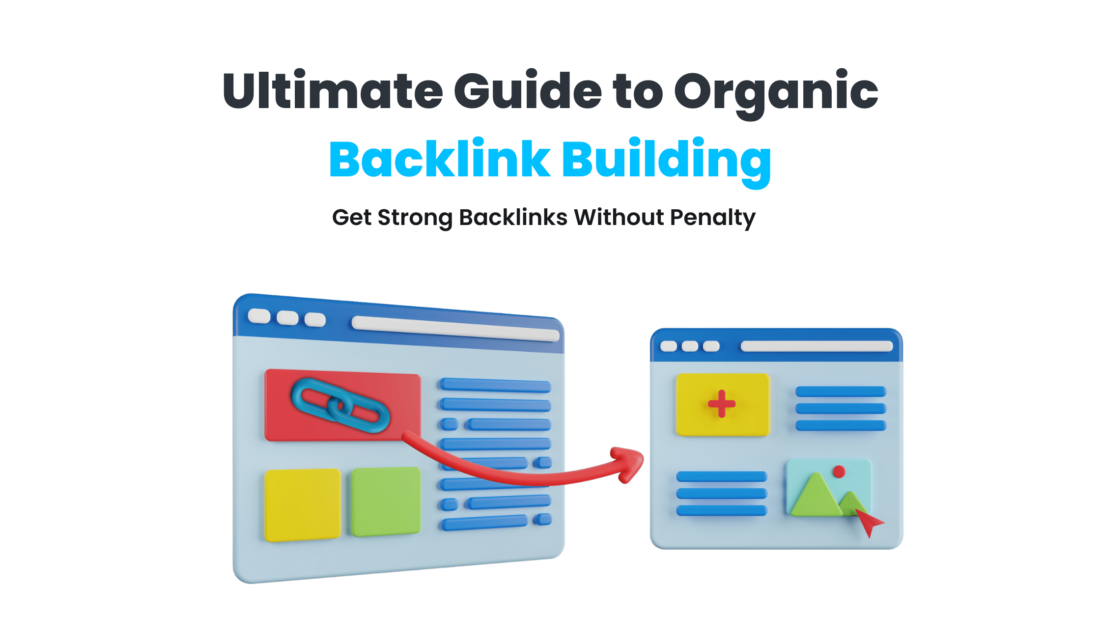In the world of search engine optimization (SEO), backlinks play a crucial role in improving your website’s visibility and organic rankings. However, the process of acquiring backlinks can be a double-edged sword. While high-quality backlinks can propel your website to new heights, unethical practices and low-quality links can lead to penalties from search engines like Google.
To help you navigate the complex landscape of backlink building, we have compiled a comprehensive guide on effective and ethical backlink building strategies. In this article, we will explore various techniques and methods for generating organic and penalty-free backlinks. So, grab a cup of coffee and let’s dive in!
Understanding the Importance of Backlinks
Before we delve into the strategies, let’s first understand why backlinks are so important for your website’s SEO. Backlinks are essentially incoming links from other websites to your own. They serve as a vote of confidence and credibility, signaling to search engines that your content is valuable and worth ranking higher in search results.
Backlinks not only drive referral traffic to your website but also contribute to your website’s authority and trustworthiness in the eyes of search engines. The more high-quality and relevant backlinks you have, the higher your chances of ranking well in search engine results pages (SERPs).

Organic Backlink Growth: The Key to Long-Term Success
When it comes to backlink building, there are two primary approaches: organic and paid. While paid backlinks may seem like a shortcut to quick results, they are risky and can lead to penalties. Instead, we recommend focusing on organic backlink growth, which involves earning backlinks naturally through valuable content and genuine relationships.
Creating High-Quality and Valuable Content
One of the most effective ways to attract organic backlinks is by creating high-quality and valuable content. When you provide unique and valuable information, other websites and bloggers are more likely to reference and link to your content as a reliable source.
To create content that naturally attracts backlinks, consider the following strategies:
- In-depth Guides: Craft comprehensive and authoritative guides that cover specific topics in your industry. These guides should provide valuable insights, actionable tips, and detailed information that cannot be found elsewhere.
- Original Research: Conduct original research and publish data-driven articles or studies. Unique data and insights are highly valuable to other researchers, journalists, and bloggers, making them more likely to reference and link to your content.
- Infographics: Create visually appealing infographics that condense complex information into easily digestible visuals. Infographics tend to be highly shareable and can attract backlinks when shared on social media platforms and embedded in other websites.
- List Posts: Publish list posts that provide valuable and concise information, such as “Top 10 Tips” or “20 Must-Have Tools.” List posts are often shared and linked to by other bloggers and influencers.
- Guest Blogging: Write guest posts for reputable websites in your industry. By providing valuable content to other websites, you can establish yourself as an authority and attract backlinks to your website.
Building Genuine Relationships and Networking
Another crucial aspect of organic backlink growth is building genuine relationships with other website owners, bloggers, and influencers. Networking can lead to natural backlink opportunities and collaborations.
Here are some strategies to build genuine relationships:
- Engage on Social Media: Connect with influencers and industry leaders on social media platforms. Interact with their posts, share their content, and provide valuable insights. This engagement can help you establish relationships and increase your chances of getting backlinks.
- Expert Interviews: Conduct interviews with experts in your industry and publish them on your website. When you feature experts, they are more likely to share the interview and link back to your website.
- Round-Up Posts: Create round-up posts that compile insights and opinions from multiple experts on a specific topic. When you mention and link to experts in your industry, they are more likely to share your post and provide backlinks.
- Collaborate on Content: Collaborate with other website owners, bloggers, or influencers to create valuable content together. This could include co-authoring blog posts, hosting webinars, or creating joint infographics. These collaborations can lead to backlinks from their websites and increased exposure for your content.
Leveraging Social Media and Online Communities
Social media platforms and online communities provide excellent opportunities for organic backlink growth. By actively engaging with your target audience and participating in relevant discussions, you can attract backlinks and increase your website’s visibility.
Consider the following strategies:
- Sharing on Social Media: Share your content regularly on social media platforms, such as Twitter, LinkedIn, and Facebook. Encourage your followers to share your content, which can lead to backlinks from their networks.
- Participating in Online Communities: Join online forums, discussion boards, and niche-specific communities related to your industry. Contribute valuable insights, answer questions, and provide helpful resources. By establishing yourself as an active and knowledgeable member, you can attract backlinks and drive traffic to your website.
- Utilizing Social Bookmarking Sites: Submit your content to social bookmarking sites like Reddit, StumbleUpon, and Digg. These platforms allow users to discover and share interesting content, potentially leading to backlinks and increased visibility.

Safe Backlink Building Practices
While organic backlink growth is essential for long-term success, it’s equally important to follow safe backlink building practices to avoid penalties and maintain a healthy link profile. Here are some guidelines to ensure your backlink building efforts remain ethical and penalty-free.
Focus on Relevance and Quality
When acquiring backlinks, prioritize relevance and quality over quantity. Seek backlinks from websites and blogs that are relevant to your industry or niche. These relevant backlinks carry more weight in search engine algorithms and are more valuable for your website’s SEO.
Additionally, focus on acquiring backlinks from high-quality and authoritative websites. These websites have a strong online reputation and can significantly enhance your website’s credibility and authority.
Diversify Your Anchor Text
Anchor text is the clickable text within a hyperlink. When building backlinks, it’s essential to diversify your anchor text to appear natural and avoid over-optimization. Instead of using the same keyword-rich anchor text repeatedly, vary your anchor text with branded terms, natural language phrases, and generic keywords.
By diversifying your anchor text, you not only avoid penalties but also improve the user experience and make your backlinks appear more organic.
Monitor Your Backlink Profile
Regularly monitor your backlink profile to identify any low-quality or toxic backlinks that could harm your website’s SEO. Use tools like Google Search Console, Ahrefs, or Moz to analyze your backlinks’ quality, anchor text distribution, and website relevance.
If you come across any suspicious or harmful backlinks, take immediate action to remove or disavow them. Disavowing backlinks tells search engines to ignore those links when assessing your website’s credibility and authority.
Avoid Black Hat SEO Techniques
It’s crucial to avoid black hat SEO techniques that manipulate search engine algorithms and violate search engine guidelines. These unethical practices can lead to severe penalties, including being deindexed or banned from search engine results.
Examples of black hat SEO techniques to avoid include:
- Buying Backlinks: Purchasing backlinks from low-quality or spammy websites is a violation of search engine guidelines. Focus on earning backlinks naturally through valuable content and genuine relationships.
- Keyword Stuffing: Overloading your content with excessive keyword usage in an attempt to manipulate search rankings is a black hat SEO technique. Instead, focus on creating high-quality and valuable content that naturally incorporates keywords.
- Hidden Text and Links: Hiding text or links by using techniques like white text on a white background or placing text behind images is a black hat SEO practice. Ensure that all your text and links are visible and accessible to users and search engines.
- Link Farms and Link Exchanges: Participating in link farms or link exchanges, where websites come together to artificially inflate each other’s backlink profiles, is considered a black hat SEO technique. Focus on building genuine relationships and acquiring backlinks from relevant and high-quality websites.
Conclusion
Backlink building is an essential part of any successful SEO strategy. By employing organic backlink growth techniques and following safe practices, you can acquire high-quality and penalty-free backlinks that boost your website’s visibility, authority, and organic rankings.
Remember to create valuable and unique content, build genuine relationships within your industry, and focus on relevance and quality when acquiring backlinks. By adopting ethical backlink building strategies, you can safeguard your website from penalties and enjoy sustainable growth in organic search.
So, start implementing these backlink-building strategies today and watch as your website climbs the search engine rankings, attracting more organic traffic and driving your business forward.

